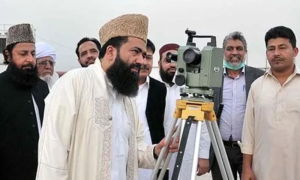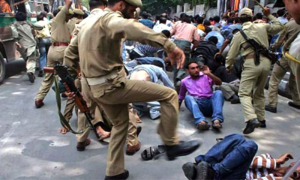The Asia Cup, envisioned by The Asian Cricket Council (ACC) in 1983, saw its first edition held in 1984 in Sharjah which was an ODI format. The first tournament was participated by three teams: Sri Lanka, Pakistan, and eventual winners India. The 2023 edition will see six teams playing for the title of Champions of Asia.
India remains the most decorated team in the Asia Cup with seven titles under its belt, and Sri Lanka has played the most Asia Cup editions, participating in all 15 of the editions that have taken place and winning the title on six occasions. Pakistan have so far managed two titles in 2000 and 2012.
But Asia Cup history is marred by tension between Pakistan and India. Right from the word go it has seen pull outs from India in 1986 while Pakistan withdrew from the event in 1990. This time too, Pakistan was supposed to host the full event but India’s intransigent stance on touring their neighbours over political tension has made the event a hotch potch event. Pakistan was left to fight to save their hosting rights and could only manage to get four matches, including the opening game in Multan. India will play all its matches in Sri Lanka, the country which will host nine including the final in Colombo on September 17.
The marquee matches – Pakistan vs India — could be three in all provided both teams reach the final. The two Asian giants meet on September 2 in Pallekele and then face off in the Super Four stage in Colombo eight days later. This is the main attraction of the event which is in 50-over format, aimed to give Asian teams, barring Nepal who failed to qualify, for the World Cup.
HISTORY:
Initially scheduled every two years in the ODI format, the 2016 Edition was the first T20 format championship after the decision that the Cup would alternate between T20 and ODI formats. Boycotts and controversies due to strained political relations have been a part of Asia Cup history, notably preceding the upcoming 2023 edition.
The first edition of the Asia Cup was played in 1984 in Sharjah, where the headquarters of The Asian Cricket Council were located. India won the tournament after beating Sri Lanka in the final, while Pakistan saw a winless run. With the success of the first Asia Cup, the second edition took place in 1986, hosted by Sri Lanka. India boycotted this edition due to strained cricketing relations with Sri Lanka and did not participate in the tournament. To prevent the contest from becoming a bilateral series, a third team, Bangladesh, was invited to play after they won the South-East Asia Cup in 1984. Sri Lanka won the tournament after defeating Pakistan in the finals.
The third Asia Cup tournament took place in Bangladesh, then an Associate member of the International Cricket Council (ICC), marking the first multi-national cricket tournament being played in the country. The hosts participated along with India, Sri Lanka, and Pakistan, the first time four teams participated in the Asia Cup. India and Sri Lanka were the finalists, and India defeated their opponents to become two-time Asia Cup winners.
India hosted the Asia Cup for the first time when the tournament took place between December 1990 and January 1991. Pakistan boycotted this edition due to troubled political relations with India, and the tournament was reduced to three teams, with the hosts joined by Sri Lanka and Bangladesh. India retained the title by defeating Sri Lanka in the finals.
The next edition of the Asia Cup was scheduled to be held in Pakistan in 1993. Due to deteriorated political relations between the hosts and the defending champions, India, the tournament was canceled. The fifth edition instead took place in April 1995, two years after it was originally supposed to take place. The tournament returned to Sharjah for the first time since the first edition eleven years prior. India, Pakistan, Sri Lanka, and Bangladesh participated, and India and Sri Lanka were the finalists. The finalists were decided by the average run rate since Pakistan also had points equal to the two finalists. India yet again defended the title by defeating Sri Lanka in the finals.
Sri Lanka hosted the sixth Asia Cup in July 1997, and four teams took place. The hosts won the finals by defeating India and bagged their second title, breaking India’s streak of three wins. The seventh edition took place between May and June of 2000, three years after the sixth, with Bangladesh hosting for the second time. India did not qualify for the finals, the first time this had happened in the Asia Cup. Pakistan defeated defending champions Sri Lanka in the final and won the Asia Cup for the first time. This edition also saw four teams taking part.
After a gap of four years, the eighth edition of the Asia Cup took place in Sri Lanka between July and August of 2004. Six teams participated for the first time, including the four test-playing nations India, Sri Lanka, Pakistan, and Bangladesh, along with associate nations UAE and Hong Kong. The tournament was divided into a Group Stage and a Super four stage, followed by the finals. Group A comprised Pakistan, Bangladesh, and Hong Kong, while Group B consisted of India, Sri Lanka, and UAE. The four test-playing nations played in the Super Four, with India and Sri Lanka emerging as the finalists. Sri Lanka defeated India by 25 runs to win the contest.
After a packed schedule not allowing the Asia Cup to be held in 2006, the ninth edition was held in 2008 in Pakistan, with the same format as the 2004 edition between the same six teams. Sri Lanka and Bangladesh qualified from Group A, while India and Pakistan emerged at the top in Group B. Sri Lanka and India were once again the finalists, with Sri Lanka defending their title by defeating India to win their fourth Asia Cup.
The tenth edition of The Asia Cup was held two years after the ninth, in June 2010, hosted by Sri Lanka. The number of teams was reduced from six to four test-playing nations: India, Sri Lanka, Pakistan, and Bangladesh. Sri Lanka and India were once again the finalists, with India claiming their record fifth Asia Cup title, defeating Sri Lanka by 81 runs. Bangladesh hosted the 2012 Asia Cup, played between the four test-playing nations. The hosts entered the finals for the first time in Asia Cup history but came short as Pakistan defeated them by 2 runs to win the title for the second time.
Bangladesh hosted the Asia Cup again in 2014. Five teams participated, with the four test- playing nations joined by Afghanistan for the first time. Defending champions Pakistan were defeated by Sri Lanka who won their fifth tournament, tying India’s record of five titles. The Asian Cricket Council was subjected to downsizing by the ICC in 2015. As a result, it was decided that the tournament would be played on a rotation basis, alternating between T20I and ODI formats every two years. The 2016 edition of the Asia Cup was the first to be played in the T20I format. Bangladesh hosted for a third consecutive time, and five teams participated. The hosts were joined by India, Sri Lanka, Pakistan, and UAE. India remained unbeaten in the tournament and defeated Bangladesh in the final to claim their record sixth Asia Cup title.
The UAE hosted the Asia Cup in 2018 for the third time. Originally scheduled to be held in India, the venue was changed owing to political tensions between India and Pakistan. The five full members of the ICC, India, Pakistan, Sri Lanka, Bangladesh, and Afghanistan, were joined by Hong Kong, the tournament taking place between six teams. India defended their title by defeating Bangladesh in the finals again, winning their record seventh title.
Pakistan was awarded the hosting rights of the 2020 Asia Cup in December 2018 by The ACC,which led to the Board of Control for Cricket in India (BCCI) requesting a venue change due to security concerns in Pakistan, which had not hosted a multi-team international tournament since 2008. Pakistan was confirmed as the host in 2019. The ACC was scheduled to meet in March 2020 to finalize the venue after concerns over India’s participation, but the meeting was delayed due to the COVID-19 pandemic. In July 2020, the tournament was postponed to 2021 due to the pandemic. Further delays were seen in March 2021, resulting in the tournament being postponed to 2023.
Following a meeting in October 2021, Pakistan was confirmed as the host for 2023 while Sri Lanka was finalised as the host for the 2022 tournament. In July 2022, due to the ongoing economic crises in Sri Lanka, the venue was changed to the UAE.
After multiple delays and venue changes, the fifteenth edition of the Asia Cup started in August 2022 in the UAE, played in the T20I format. India defeated Pakistan in their highly anticipated clash but was unable to replicate their victory in the super four, being knocked out after losing to Sri Lanka. Pakistan advanced to the finals after beating Afghanistan in a close encounter. Sri Lanka defeated Pakistan in the finals in a hard-hitting encounter to win their sixth title.
TEAM’S CHANCES:
Afghanistan: Afghanistan is fast developing into a strong outfit. They have a strong spin attack which can come handy on the slow pitches in Pakistan and Sri Lanka. But Afghanistan’s main weakness is their maverick batting, proven vulnerable during the three-match ODI series against Pakistan in which they were blanked 3-0. Afghanistan were shot out for their second lowest total of 59 in the first game.
To add to their problems, Afghanistan’s selection also left a lot to be desired. They did not select developed fast bowlers like Naveen-ul-Haq and Fareed Malik and instead opted for Abdul Rahman.
Bangladesh: Bangladesh will miss their inspiring captain Tamim Iqbal who was ruled out of the event with injury. The ever-green but moody Shakib Al Hasan will lead the team and will be the key inspiration. Bangladesh’s strong point is their spin attack which has taken the most wickets in ODI cricket in the last four years since the 2019 World Cup. Their recent loss to Afghanistan may prove a jolt for them as they needed to lift their fielding and death bowling.
India: India are as strong as ever and would like to clinch the title to tune up for the World Cup which will be played on their grounds. But out of form Rohit Sharma is under pressure to perform. Rohit hopes he comes in the 2019 World Cup form where he amassed 648 runs with a record five hundreds. Virat Kohli will once again be the mainstay of the batting which will see the return of KL Rahul and Shreyas Iyer.
Also back in the squad is ace pacer Jasprit Bumrah after missing the Twenty20 World Cup in Australia. If Bumrah is at his best, India will cause problems for opponents. Mohammad Shami, Prasidh Krishna, Mohammad Siraj, Sharadul Thakur and Hardik Pandya complete a strong bowling line up while spin has notable performers in Jadeja, Kuldip Yadav and Axar Patel.
Pakistan: Pakistan looks red hot as world number one ODI side in the world. They have the firepower in pace bowling. Shaheen Shah Afridi, Naseem Shah and Haris Rauf make the most hostile fast bowling trio in the Asia Cup. Faheem Ashraf is the pace allrounder while Shadab Khan, Mohammad Nawaz, Usama Mir, Agha Salman and Iftikhar Ahmed are spinners who can not only take wickets but can stop the flow of runs in middle overs.
With a strong top order consisting of Fakhar Zaman, Imam-ul-Haq and Babar Azam, Pakistan promises good totals. The middle-order was a concern but that too came good in the Afghanistan series with Mohammad Rizwan, Shadab and Salman scoring useful runs.
Nepal: Nepal will be playing the Asia Cup for the first time after qualifying from ACC Premier Cup played in their country. They beat Oman and UAE to qualify for the Asia Cup. Nepal has an inspiring coach in Monty Desai who hails from India. When Desai joined Nepal in February, they were second from bottom of the World Cup Super League 2 points table. They needed 11 wins from a possible 12 matches to secure a berth at the 50-over World Cup Qualifier in Zimbabwe this June. In the six WC qualifier games they beat USA and UAE but lost four matches and failed to qualify. Nepal will gain important exposure from the Asia Cup.
Tournament Summary:
Teams Format Winners
1 st 1984 UAE 3 ODI India
2 nd 1986 Sri Lanka 3 ODI Sri Lanka
3 rd 1988 Bangladesh 4 ODI India
4 th 1990/91 India 3 ODI India
5 th 1995 UAE 4 ODI India
6 th 1997 Sri Lanka 4 ODI Sri Lanka
7 th 2000 Bangladesh 4 ODI Pakistan
8 th 2004 Sri Lanka 6 ODI Sri Lanka
9 th 2008 Pakistan 6 ODI Sri Lanka
10 th 2010 Sri Lanka 4 ODI India
11 th 2012 Bangladesh 4 ODI Pakistan
12 th 2014 Bangladesh 5 ODI Sri Lanka
13 th 2016 Bangladesh 5 T20I India
14 th 2018 UAE 6 ODI India
15 th 2022 UAE 6 T20I Sri Lanka























